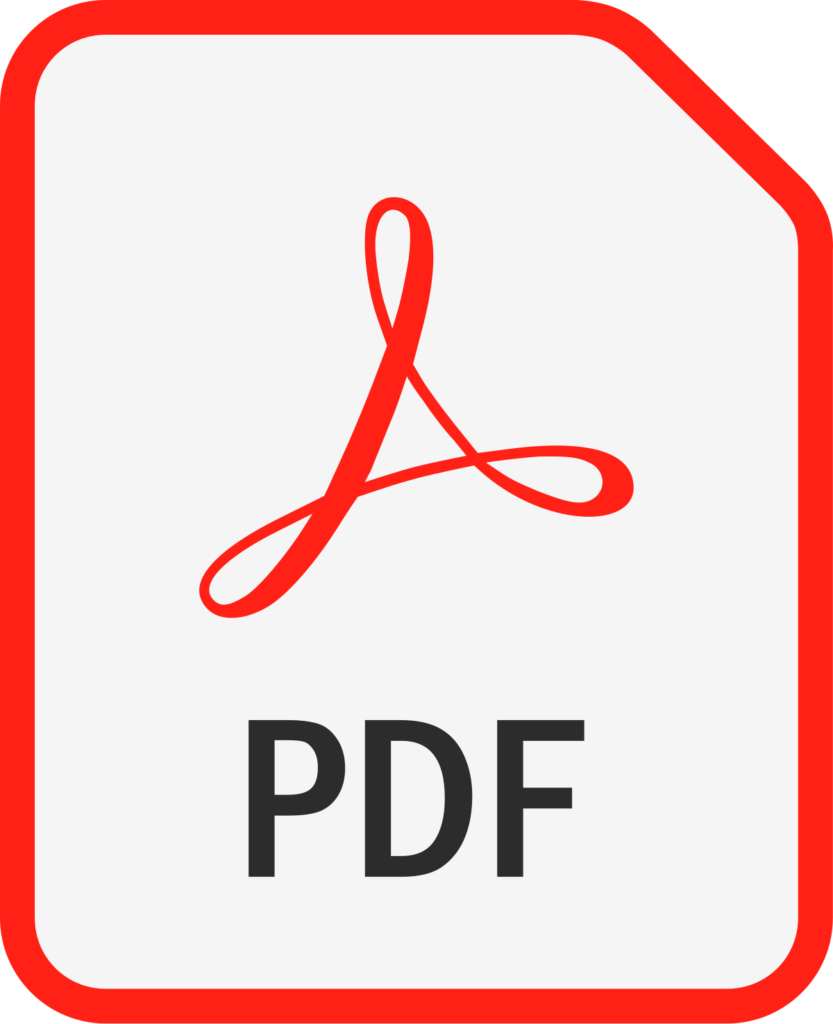Proprietary Information and Protective Covenance Agreement This Proprietary Information and Protective Covenants Agreement (“Agreement”) is entered into by and between ____________ (“Employee”) and GFC Services LLC, and assigns to which Employee provides services, if any (collectively “COMPANY”), and shall become effective immediately upon Employee’s employment with COMPANY. Employee and the COMPANY are referred to individually as a “Party” and collectively as the “Parties” for purposes of this Agreement.
In consideration of the mutual representations, warranties, covenants, and agreements set forth below, and for other good and valuable consideration, including Employee’s employment and/or continued employment and for that consideration, the receipt and sufficiency of which is hereby acknowledged, Employee and COMPANY agree as follows:
SPECIAL RELATIONSHIP OF TRUST AND DUTY OF LOYALTY.
The COMPANY is engaged in the business of providing comprehensive non–medical home care services (“Business”). COMPANY is placing Employee in a special position of trust and confidence. In reliance upon the protective covenants in this Agreement, COMPANY is prepared to entrust Employee with one or more of the following lines of key Proprietary Information (defined below), marketing plans, prospective clients and referral sources, and strategic planning related to the Business and/or COMPANY. Employee recognizes and agrees that COMPANY would not be providing these benefits of employment in the absence of Employee’s promise contained herein.
PROPRIETARY INFORMATION.
Employee understands that, by virtue of Employee’s employment with the COMPANY, Employee will acquire, create, and be exposed to Proprietary Information of the COMPANY. For purposes of this Agreement, “Proprietary Information” is defined as follows: All ideas, information, and materials, tangible or intangible, not generally known to the public, relating in any manner to the business of the COMPANY, its products and services (including all trade secrets, fee lists, officers, directors, and customers), financial resources, customers, vendors, and affiliates, and all others with whom it does business, its trade secrets, and financial information, including, without limitation, revenue sources, profit margins, pricing data, sales information, customer identities and preferences, referral sources, commissionable amounts payable with respect to sales revenue, individual facilities’ profitability, operating margins, operating expenses, gross profit charts, and pro-forma statements, project time methods, price and cost data, pending projects and proposals, or marketing or service strategies that Employee learns or obtains during Employee’s employment with the COMPANY. All non-public information of any person or entity owned by, controlled by, or affiliated with the COMPANY, and the non-public information of any other person or entity to which the COMPANY owes a duty of confidentiality.
iii. Proprietary Information does not include public domain information or information in the public domain that is generally known within the industry or professions in which COMPANY engages in Business, (i) information that becomes publicly known through lawful means and without breach of this Agreement or a similar agreement binding on a third party, or (ii) non-privileged employee skill or skill set, and (iii) information lawfully acquired by a non-management employee about wages, hours, or other terms and conditions of non-management employees solely for his or her own personal benefit.
During and after Employee’s employment with the COMPANY, Employee shall hold in trust and confidence all Proprietary Information. Employee shall not disclose any Proprietary Information to any person outside the COMPANY without the written approval of an authorized officer of the COMPANY. Employee shall also use Proprietary Information for business purposes on behalf of the COMPANY or as may be required by law. In the course of employment (and any employment activities beyond employment), Employee shall comply with all of the COMPANY’s policies, procedures, regulations, or directives relating to the protection and confidentiality of Proprietary Information. Upon separation of Employee’s employment with the COMPANY for any reason, (i) Employee shall not use Proprietary Information, or disclose Proprietary Information to any third party, without the prior written consent of an authorized officer of the COMPANY, and (ii) Employee shall deliver to the COMPANY all documents, equipment, and data (including all copies, drafts, and records in any form) pertaining to any Proprietary Information, or relating directly or indirectly to the business of the COMPANY, which are in Employee’s possession or under Employee’s control.
anyone, for any purpose, unless expressly requested and authorized to do so in writing by an authorized corporate officer of the Company.
ii) Employee shall not retain or take with Employee any Proprietary Information in a Tangible Form (defined below). Employee shall not retain copies of any Proprietary Information, and Employee shall immediately deliver to the Company all Proprietary Information in a Tangible Form not otherwise returned or destroyed by the Company upon final and total control and all other property, equipment, documents, or things that Employee was issued or otherwise received or obtained during Employee’s employment with the Company, other than wage and benefit related materials provided to Employee as an employee. For purposes of this Agreement, an employee of the Company includes “Preferred Staff,” which includes per diem, W-2 staff, and/or agent for the Company, or an independent or other member, or other service user or contractor for the Company.
iii) Pursuant to the Defense of Trade Secrets Act (“DTSA”), Employee shall not be held criminally or civilly liable under any U.S. federal or state trade secret law for the disclosure of a trade secret that (a) is made (i) in confidence to a federal, state, or local government official, either directly or indirectly, or to an attorney, and (ii) is made solely for the purpose of reporting or investigating a suspected violation of law, or (b) is made in a complaint or other document filed under seal in a lawsuit or other proceeding, such filing is made under seal. If Employee files a lawsuit against Company for retaliation by Company for reporting your or any suspected violation of law, Employee may disclose the trade secret to Employee’s attorney and use the trade secret information in the court proceeding (including filing it) so long as documents containing the trade secret are filed under seal and Employee does not disclose the trade secret except pursuant to court order. Nothing in this Agreement is intended to conflict with 18 U.S.C. § 1833(b) or create liability for disclosures of trade secrets that are expressly allowed by 18 U.S.C. § 1833(b).
NON-INTERFERENCE WITH BUSINESS RELATIONSHIPS.
Employee acknowledges that a simple agreement not to disclose or use the Company’s Proprietary Information, standing alone, would be inadequate to protect the Company from the kind of irreparable harm that could be caused by Employee improperly competing in certain types of conduct. In particular, Employee acknowledges the unique, by virtue of Employee’s employment with the Company. Employee has been given a developing and maintaining relationships with prospects, customers, vendors, referral sources, and others with whom the Company does business. As a result of these close and unique relationships, Employee will be in a position to develop significant goodwill with such parties, which goodwill can be obtained for the Company, and provide Employee with the ability to improperly impair or eliminate the business of such persons if Employee were to assist in the business of a competitor of the Company. Accordingly, to help prevent irreparable harm in the loss of Company’s customer goodwill, Employee agrees as follows: While employed and for a period of one year following the termination of Employee’s employment with the Company (whatever the cause), Employee will not, directly or through another party, including a Restricted Customer’s family member, Consultant, solicit, or communicate with a Restricted Customer or Restricted Referral Source of the Company for the purpose of encouraging, causing, or inducing such Restricted Customer or Restricted Referral Source to cease or reduce doing business with Company or modify their relationship with the Company to the Company’s detriment, or divert in-home care or related opportunities to a competing business. If Employee assists any such person or entity in so doing, “Restricted Customer” is a Company customer, prospect, or former customer; “Restricted Referral Source” is an individual or business-related contact or dialog with whom Employee received Proprietary Information during the Look Back Period. “Federal Source” means a federal payment or any other head or person or other customer/patient that relates to the Company during the Look Back Period. “Referral Source” specifically includes, but is not limited to, any physician, surgeon, medical director, hospital, nursing home, therapist, hospice, rehabilitative center, independent contractor, patient family member, patient, or client of the Company; and all referring medical service providers or representatives of any such organization. This includes any individual or business including facilities, agencies, physicians, or similar referring individuals, vendors, providers, or arrangers of the provision of in-home senior care services, or any nursing or clerical staff under the supervision of the foregoing. A “Restricted Referral Source” is a Referral Source with whom Employee had non-privileged contact or an arrangement during or about when Employee provided her/his care during the Look Back Period. “Look Back Period” refers to the last year of Employee’s employment with Company. “Competing Business” means a person or entity other than the Company that is engaged in the Business or planning to become engaged in the Business within 50 miles of any location at which Employee worked on behalf of the Company.
NON-SOLICITATION OF PERSONNEL.
During Employee’s employment with the Company and for one (1) year thereafter, Employee shall not, directly or through others, hire or cause to be hired, a Covered Employee to work for a Competing Business or communicate with a Covered Employee for the purpose of interfering with or severing the Covered Employee’s employment or engagement with the Company. A “Covered Employee” is any employee or independent contractor of Company or any present or prospective affiliates of Company with whom the Employee had business contact or acquired knowledge of through legitimate means during the last year of Employee’s service with the Company or about whom Employee has Proprietary Information.
relationship with the Company for the purpose of working for a Competing Business. A “Covered Employee” is an employee of the Company who Employee had business-related communications with or about whom Employee learned Proprietary Information during the last year of Employee’s employment with the Company. This Section does not apply to the publication of job advertisements or listings to the general public (i.e., listings on internet job boards) that are not directed to one or more specific employees of the Company or the employees of the Company generally.
Employee acknowledges that breach of the Non-Solicitation provision will subject the Company to irreparable harm which is not easily calculable in monetary terms. The damage caused by each Covered Employee is the sum of the applicable Employee’s annual compensation as liquidated damages and not a penalty or violation. Employee agrees that the amount of damages the Company would suffer in the event of a breach in engaging in efforts to replace the Covered Employee, train a replacement employee, and lost opportunity from the loss of a significant employee is not susceptible to calculation with certainty. Accordingly, the annual compensation figure is a reasonable estimate of the damages in Employee’s breach. The Company will not likely incur for each breach all, but that is a measure of them.
5. RETURN OF DOCUMENTS AND MATERIALS.
Immediately upon the termination of Employee’s employment at any time if requested by the Company, Employee shall return all property of the Company, including but not limited to property, information, and further including computer software, software usage, media, operating systems, networks, accounts, e-mail accounts and systems, access credentials, documents, files, vehicles, devices, customer and employee lists and contacts, and all other Company property of any type, written, graphic, or electronic. After returning all property to the Company, Employee agrees to permanently delete from personal devices any copies of files of any Company property provided or in any application or software. Employee shall not make or retain any copies of such property or permit any other unauthorized appropriation or removal of Company property.
PROPRIETARY INFORMATION OF OTHERS / COMPLIANCE WITH LAWS.
Employee shall not breach any lawful, enforceable agreement to keep in confidence, or to refrain from using, the nonpublic ideas, information, or materials of a third party, including, but not limited to, a former employer or present or former customer. Employee shall not bring any such ideas, information, or materials to the Company, or use any such ideas, information, or materials in connection with Employee’s employment by the Company. Employee shall comply with all national, state, local, and other laws, regulations, and ordinances. Nothing in this Agreement shall eliminate, reduce, or otherwise remove any legal duties or obligations that Employee would otherwise have to the Company through common or statutory law.
RIGHTS AND REMEDIES UPON BREACH.
The Parties agree that in the event of a breach, or threatened breach, of any of the provisions of this Agreement, the non-breaching Party—in aid of arbitration if Employee is subject to an arbitration agreement (as provided), or by a court of competent jurisdiction—shall have the right and remedy to have each and every one of the covenants or agreements in this Agreement specifically enforced and the right and remedy to obtain temporary and permanent injunctive relief. Employee acknowledges and agrees that any breach or threatened breach of any of the covenants and agreements contained herein would cause irreparable harm to the Company and that money damages would not provide an adequate remedy at law for any breach or threatened breach. Moreover, if Employee breaches or threatens to commit a breach of this Agreement during Employee’s employment with the Company, Employee may be subject to immediate termination. In the event the Company prevails in seeking to enforce Sections 1 through 4 of this Agreement, the prevailing Party shall be entitled to recover all reasonable attorneys’ fees, costs, and expenses, including any expert fees, that it incurred in connection with any such proceeding.
SEVERABILITY / BLUE-PENCIL.
The Parties acknowledge and agree: (a) that if any duly-appointed arbitrator (if applicable) or court of competent jurisdiction subsequently determines that any of the restrictions, covenants, or any part thereof, is invalid or unenforceable, the remainder of such covenant and agreements shall not thereby be affected, and shall be given full effect without regard to the invalid portion; and (b) that if such arbitrator or court determines that any of the covenants and agreements or part thereof is invalid or unenforceable because of the duration or scope of such provision, such arbitrator or court shall have the power to reduce or modify the duration or scope of such provision, as the case may be, and in its reduced or modified form, such provision shall then be enforceable to the maximum extent permitted by applicable law.
GOVERNING LAW.
This Agreement shall be construed, interpreted, and governed in accordance with either (a) the laws of Maryland, or (b) in the event of a breach of any of the covenants contained in Sections 1 through 4, the law of the state where such breach actually occurs, depending on whichever choice of law shall ensure to the maximum extent that the covenants shall be enforced, irrespective of any conflict of law rules.
ENTIRE AGREEMENT / MODIFICATION / NO WAIVER.
This Agreement (a) represents the entire agreement of the Parties with respect to the subject matter hereof, (b) shall supersede any and all previous contracts, arrangements, or understandings between the Parties hereto with respect to the subject matter hereof, and (c) may not be modified or amended except by an instrument in writing signed by each of the Parties hereto or by order of a court of competent jurisdiction or duly-appointed arbitrator. This provision does not supersede any arbitration agreement, compensation agreement, or other agreement executed by Employee that does not pertain to the subject matter of this Agreement.
PARTIES IN INTEREST / ASSIGNMENT / SURVIVAL.
Neither this Agreement nor any of the rights, interests, or obligations under this Agreement shall be assigned, in whole or in part, by operation of law or otherwise, by Employee. The Company may sell, assign, and transfer all of its rights, title, and interests in this Agreement without the prior consent of Employee, whether by operation of law or otherwise, in which case this Agreement shall remain in full force after such sale, assignment, or other transfer and may be enforced by any successor, assignee, or transferee of all or any part of the Company’s business as fully and completely as it could be enforced by the Company, and the Company in the case of any sale, assignment, or other transfer of a part, but not all, of the business. Employee’s duties and obligations under this Agreement shall survive the termination of Employee’s employment with the Company and shall, likewise, continue to apply and be valid notwithstanding any change in Employee’s duties, compensation, responsibilities, position, or title and/or the assignment of this Agreement by the Company.


